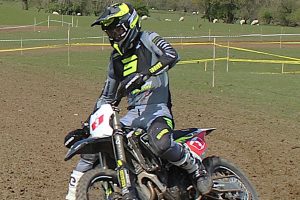IN a normal World Cup cycle, a summer tour clashing with a British & Irish Lions series offers Wales the ideal chance to experiment — to blood promising talent and build depth for the future. That’s exactly what happened in 2009, when the national side faced Canada and the USA, giving international debuts to future stalwarts like Jonathan Davies, Dan Lydiate and Sam Warburton. Similar opportunities arose on tours to Japan in 2013, and Samoa and Tonga in 2017. But this time, the stakes are altogether different.
This summer, as Andy Farrell’s Lions prepare to head Down Under, Wales embark on a two-Test tour of Japan in perhaps the bleakest form in their modern history. Back-to-back wooden spoons in the Six Nations and a record 17 consecutive Test defeats have left Welsh rugby in disarray — and now is not the time for experimentation.
That Wales have just two representatives — Jac Morgan and Tomos Williams — named in the Lions squad speaks volumes about the nation’s current standing. There is little dispute over their omission. In truth, there’s little injustice either.
But while the Lions tour typically provides breathing space to test new combinations, this time, the focus must shift firmly towards winning. Wales must stop the rot. There is no room for sentiment or long-term planning at the expense of results. Two victories in Japan are non-negotiable.
Matt Sherratt is expected to continue as interim head coach, and with it, to name the strongest squad available, bolstered by a select group of promising players for future development. The WRU brand has taken a battering in recent years, and though terms like “nadir” have been worn thin in describing Welsh rugby’s woes, defeat to Japan — currently ranked just one place below Wales in the World Rugby standings — could trigger yet another downward spiral, particularly with the next World Cup draw looming.
Among those likely to be desperate to make the trip are Dewi Lake and Taulupe Faletau. Not only do they offer proven quality, but they may also be on standby should injuries strike Farrell’s Lions squad in Australia. In that context, their presence in Japan makes strategic sense.
In the tight five, there is every reason to bring back Bath’s Archie Griffin — arguably the most complete tighthead available to Wales. Adam Beard’s experience should see him return alongside Dafydd Jenkins in the second row, while Teddy Williams, Will Rowlands and Rhys Davies offer strong alternatives.
In the back row, Faletau’s inclusion is vital, while the likes of Taine Plumtree, Tommy Reffell, Aaron Wainwright, James Botham and Alex Mann provide a depth of talent Wales must utilise to overpower the Japanese pack.
At scrum-half, Kieran Hardy warrants a recall. Omitted from the past two squads, his recent form for the Ospreys has been exemplary and, fitness permitting, he should start both Tests.
The fly-half position remains a key talking point. Gareth Anscombe, at 34, offers valuable experience that could aid the development of younger tens. Dan Edwards has been the standout No. 10 in Welsh rugby recently, while Sam Costelow is only just returning to full fitness. Jarrod Evans also made a solid return during the Six Nations. Wales need a young playmaker to stake his claim — and there may be no better moment for either Edwards or Costelow to step up.
In the midfield and back-three, expect to see Max Llewellyn, Ben Thomas, Joe Roberts, Eddie James and Owen Watkin feature prominently. However, Macs Page — who can also slot in on the wing — brings a different dynamic and should be included. Blair Murray, Ellis Mee, Tom Rogers and Josh Adams offer continuity, while Gabriel Hamer-Webb’s recent form for Cardiff puts him firmly in contention for a call-up.
One name that should be inked onto the squad list is Cam Winnett. Overlooked for the Six Nations, his performances for Cardiff this season have been consistently excellent. Jacob Beetham is another option worth considering.
Wales would also do well to explore the eligibility of Kane James, the Exeter Chiefs back-rower who helped England U20s to a World Cup win. If the WRU can convince him to switch allegiance, they may well secure a long-term asset with immense potential.
Ultimately, while a handful of selections should indeed look toward 2027, the stark truth remains: Wales cannot afford to send a second-string side to Japan. This summer is not about development — it’s about survival. And it starts with two wins in the Land of the Rising Sun.















